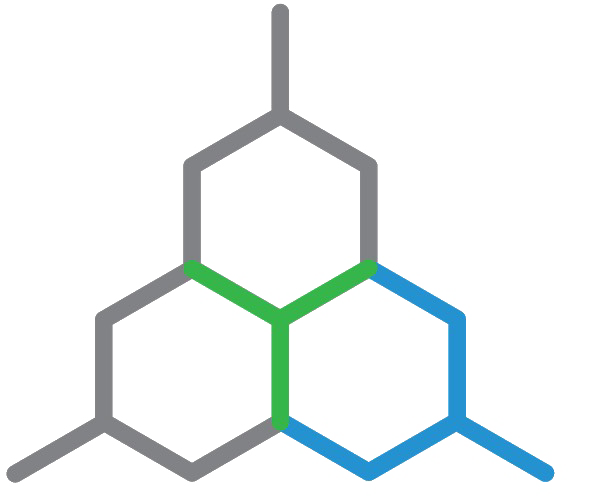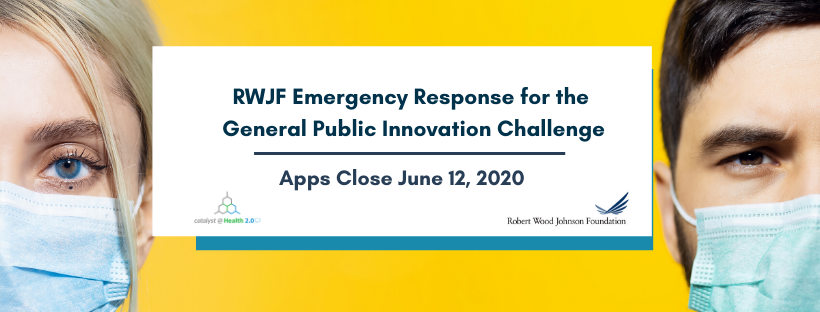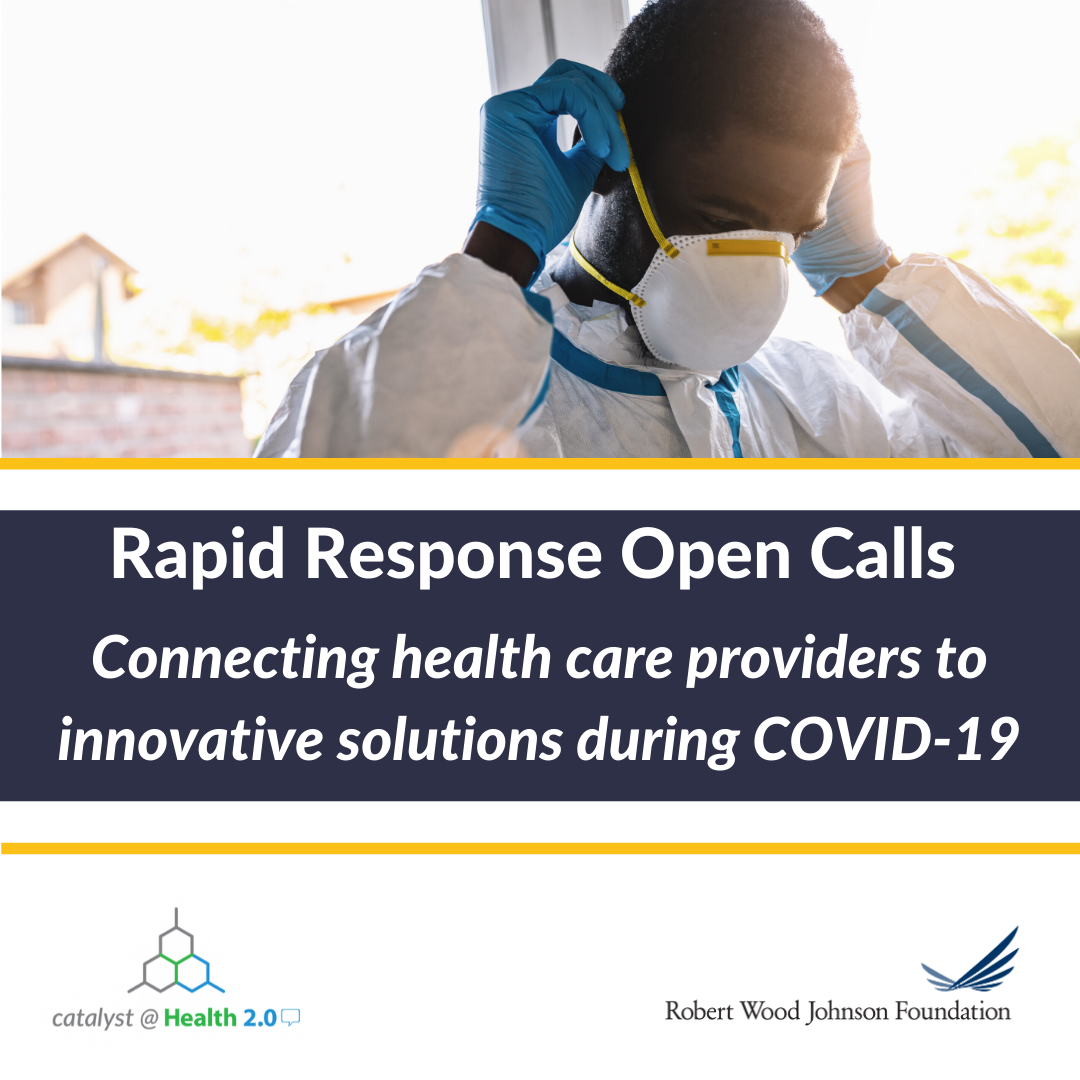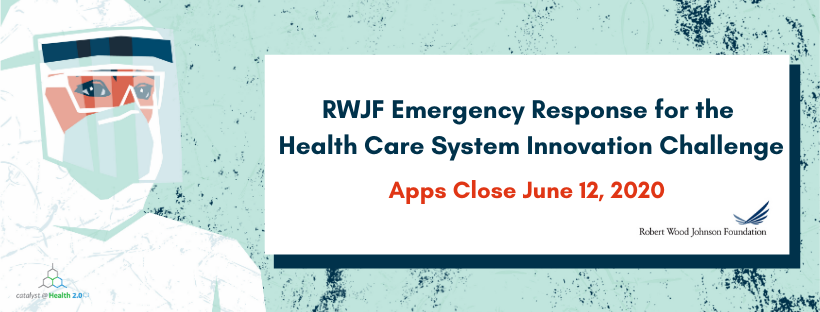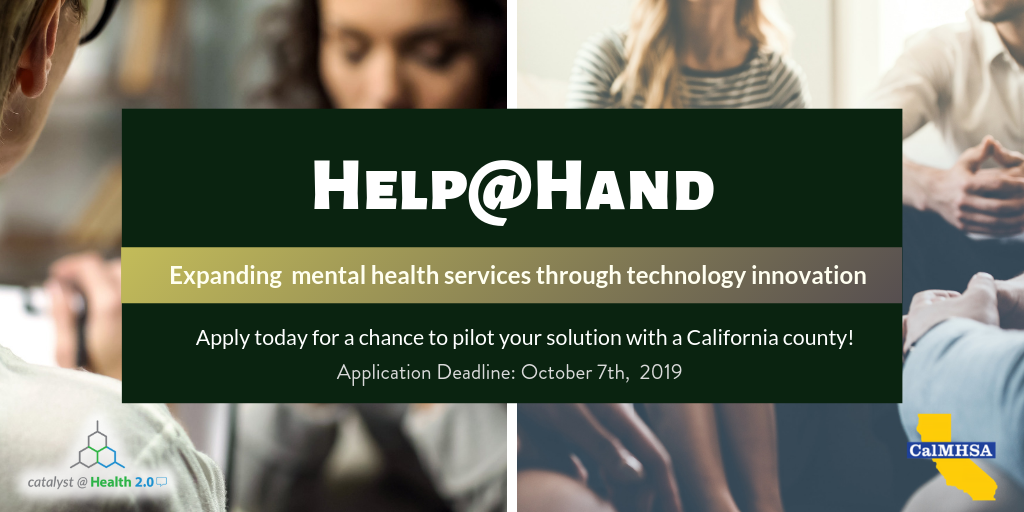At-Home Care Startup Heal Plans Expansion with $100M Investment from Humana
Home healthcare provider Heal is expanding with $100 million in new funding from Humana. Humana will work with Heal to expand its footprint to new markets, including Chicago, Charlotte and Houston. Heal will also use the funds to expand the services that it offers, including potentially offering physical therapy and dermatology. Heal makes medical appointments more convenient, especially for patients with chronic conditions or other potential health risks.
Announcing the RWJF Emergency Response Challenge Semi-Finalists
The Robert Wood Johnson Foundation (RWJF) and Catalyst @ Health 2.0 are excited to announce the semi-finalists for their Innovation Challenges on Emergency Response for the General Public and Emergency Response for the Health Care System.
Emergency Response for the General Public Semi-Finalists:
Fresh EBT by Propel- A technology tool for SNAP families to address food insecurity & economic vulnerability in times of crisis.
CovidSMS- CovidSMS is a text message-based platform providing city-specific information and resources to help low-income communities endure COVID-19.
Front-Line Force- A platform that connects volunteers 1:1 with front-line healthcare workers to complete tasks for them in crises.
Binformed Covidata- Binformed is a clinically-driven comprehensive desktop + mobile infectious disease, epidemic + pandemic management tool targeting suppression and containment of diseases such as COVID-19.
Evva Health- Hub-and-Spoke model and A.I. Community Coordinator for individual and community-level personalization of support and resource coordination.
Emergency Response for the Health Care System Semi-Finalists:
Qventus- Qventus is a patient flow automation solution that applies AI / ML and behavioral science to help health systems optimize resources for Covid, create effective capacity, and reduce frontline burnout.
Path Check- Path Check provides privacy first, free, open source solutions for public health to supplement manual contact tracing, visualize hot spots, and interfaces with citizen-facing privacy first apps.
Tiatros Inc- The first mental health and social support platform that combines clinical expertise, peer communities and scalable technology to advance mental wellbeing and to sustain meaningful behavioral change.
Hikma Health- Hikma is the first affordable, lightweight, mobile, cloud-based EHR that provides dynamic data insights to physicians in refugee and under-resourced settings.
University Hospitals Ventures- UH Innovates is a crowdsourcing platform for University Hospitals' 30k employees to generate, iterate, and implement ideas in real-time, within crisis response and beyond.
The five teams will receive $1,000 and advance to the next round of the competition. Three finalists will be chosen with the help of a panel of judges to compete in a virtual pitch (TBD). They will demo their technology virtually in front of a captivated audience of investors, provider organizations, health plans, tech companies, foundations, government officials and members of the media and compete for first, second, and third place. The winners will be awarded $25,000 for first place, $15,000 for second place, and $5,000 for third place.
Learn more about the semi-finalists for the Emergency Response for the General Public Challenge here.
Learn more about the semi-finalists for the Emergency Response for the Health Care System Challenge here.
RROCs: Tracking Innovative Health Tech Solutions in Response COVID-19
In collaboration with the Robert Wood Johnson Foundation, Catalyst @ Health 2.0 is continuing to hold open calls connecting health care providers in need with health tech solutions. Rapid Response Open Calls (RROCs) are a fast way to source innovative solutions from Catalyst’s widespread network.
If you are a healthcare provider in need of #healthtech solutions or a healthcare stakeholder looking to participate in a subsidized RROC, you can learn more and apply HERE.
